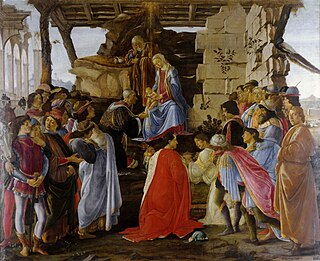
Conan the Barbarian is a fictional sword and sorcery hero who originated in pulp magazines and has since been adapted to books, comics, films, television programs, video games, and role-playing games. Robert E. Howard created the character in 1932 for a series of fantasy stories published in Weird Tales magazine.

Sword and sorcery (S&S) or heroic fantasy is a subgenre of fantasy characterized by sword-wielding heroes engaged in exciting and violent adventures. Elements of romance, magic, and the supernatural are also often present. Unlike works of high fantasy, the tales, though dramatic, focus on personal battles rather than world-endangering matters. Sword and sorcery commonly overlaps with heroic fantasy. The genre originated from the early-1930s works of Robert E. Howard. The term "sword and sorcery" was coined by Fritz Leiber in the May 1961 issue of the fantasy fanzine Amra, to describe Howard and the stories that were influenced by his works. In parallel with "sword and sorcery", the term "heroic fantasy" is used, although it is a more loosely defined genre.
The Galactic Empire series is a science fiction sequence of three of Isaac Asimov's earliest novels, and extended by one short story. They are connected by their early place in his published works and chronological placement within his overarching Foundation universe, set around the rise of Asimov's Galactic Empire, between the Robot and Foundation series to which they were linked in Asimov's later novels.

Linwood Vrooman Carter was an American author of science fiction and fantasy, as well as an editor, poet and critic. He usually wrote as Lin Carter; known pseudonyms include H. P. Lowcraft and Grail Undwin. He is best known for his work in the 1970s as editor of the Ballantine Adult Fantasy series, which introduced readers to many overlooked classics of the fantasy genre.
John William Jakes was an American writer, best known for historical and speculative fiction. His American Civil War trilogy, North and South, has sold millions of copies worldwide. He was also the author of The Kent Family Chronicles. Jakes used the pen name Jay Scotland among others.
Laurence Michael Yep is an American writer. He is known for his children's books, having won the Newbery Honor twice for his Golden Mountain series. In 2005, he received the biennial Laura Ingalls Wilder Medal for his career contribution to American children's literature.

Sherman Joseph Alexie Jr. is a Native American novelist, short story writer, poet, screenwriter, and filmmaker. His writings draw on his experiences as an Indigenous American with ancestry from several tribes. He grew up on the Spokane Indian Reservation and now lives in Seattle, Washington.
William Joseph Kennedy is an American writer and journalist who won the 1984 Pulitzer Prize for his 1983 novel Ironweed.

MacKinlay Kantor, born Benjamin McKinlay Kantor, was an American journalist, novelist and screenwriter. He wrote more than 30 novels, several set during the American Civil War, and was awarded the Pulitzer Prize for Fiction in 1956 for his 1955 novel, Andersonville. He also wrote the novel Gettysburg, set during the Civil War.

Self-insertion is a literary device in which the author writes themselves into the story under the guise of, or from the perspective of, a fictional character. The character, overtly or otherwise, behaves like, has the personality of, and may even be described as physically resembling the author of the work.

Kull of Atlantis or Kull the Conqueror is a fictional character created by writer Robert E. Howard. The character was more introspective than Howard's subsequent creation, Conan the Barbarian, whose first appearance was in a re-write of a rejected Kull story.
David Wingrove is a British science fiction writer. He is well known as the author of the Chung Kuo novels. He is also the co-author of the three Myst novels.

Scott David Westerfeld is an American writer of young adult fiction, best known as the author of the Uglies and the Leviathan series.

Thongor of Lemuria is a fantasy novel by American writer Lin Carter, the second book of his Thongor series set on the mythical continent of Lemuria. It was first published in paperback by Ace Books in 1966. The author afterwards revised and expanded the text, in which form it was reissued as Thongor and the Dragon City, first published in paperback by Berkley Books in 1970. This retitled and revised edition became the standard edition for later reprintings.
Michael Angus Phillips, is a British writer and broadcast journalist of Guyanese descent. He is best known for his crime fiction, including four novels featuring black journalist Sam Dean.
Chinese science fiction is genre of literature that concerns itself with hypothetical future social and technological developments in the Sinosphere.
Robert E. Howard's legacy extended after his death in 1936. Howard's most famous character, Conan the Barbarian, has a pop-culture imprint that has been compared to such icons as Tarzan of the Apes, Count Dracula, Sherlock Holmes, and James Bond. Howard's critical reputation suffered at first but over the decades works of Howard scholarship have been published. The first professionally published example of this was L. Sprague de Camp's Dark Valley Destiny (1983) which was followed by other works, including Don Herron's The Dark Barbarian (1984) and Mark Finn's Blood & Thunder (2006). Also in 2006, a charity, Robert E. Howard Foundation, was created to promote further scholarship.
Pakistani English literature refers to English literature that has been developed and evolved in Pakistan, as well as by members of the Pakistani diaspora who write in the English language. English is one of the official languages of Pakistan and has a history going back to the British colonial rule in South Asia ; the national dialect spoken in the country is known as Pakistani English. Today, it occupies an important and integral part in modern Pakistani literature. Dr. Alamgir Hashmi introduced the term "Pakistani Literature [originally written] in English" with his "Preface" to his pioneering book Pakistani Literature: The Contemporary English Writers as well as through his other scholarly work and the seminars and courses taught by him in many universities since 1970's. It was established as an academic discipline in the world following his lead and further work by other scholars, and it is now a widely popular field of study.
Hong Sung-won was a Korean author.

The Barbarian of World's End is a fantasy by American writer Lin Carter, set on a decadent far-future Earth in which all the world's landmasses have supposedly drifted back together to form a last supercontinent called Gondwane. The book is chronologically the fourth in Carter's Gondwane Epic. It was first published in paperback by DAW Books in May 1977. A trade paperback edition was published by Wildside Press in January 2001 and an ebook edition by Thunderchild Publishing in May 2019. The book includes a map of the portion of Gondwane in which its story is set and "A Glossary of Places Mentioned in the Text" by the author.









